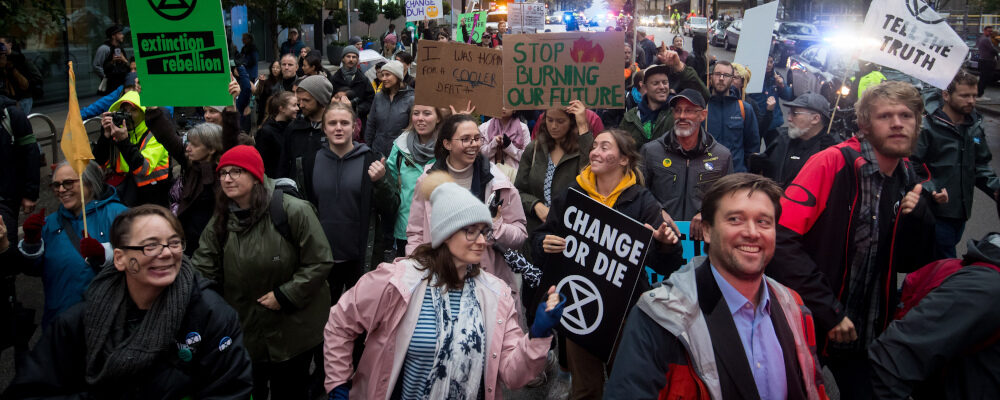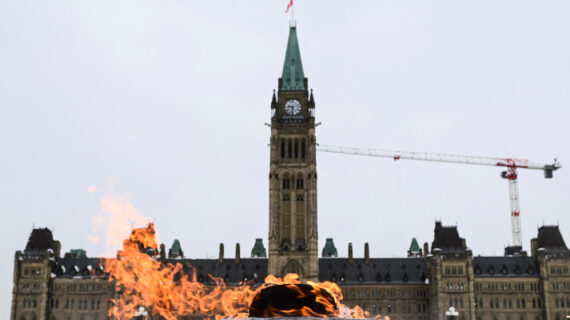The Public Policy Forum (disclosure: where I am a senior fellow) recently released a major paper on Canada’s climate goals and the implications for the oil and gas sector. It’s a must-read for anyone interested in climate policy and the inherent trade-offs in different policy approaches.
Yet the paper has been criticized in some policy quarters for various reasons including, for instance, that it doesn’t properly account for the economic benefits of cultivating fossil fuel alternatives. (The researchers who produced the analysis have responded to this particular critique.)
The main criticism however is about the scenarios that the paper models to meet Canada’s goal of net-zero emissions by 2050. The argument seems to be that the paper is wrong to account for the actions and words of environmental activists when it comes to “keep[ing] the oil in the ground” or “landlock[ing] the oil sands” or the need to “phase them out” altogether as the prime minister said in 2017. It amounts to something of a Trumpian expectation: they’re to be taken seriously but not literally.
The paper essentially puts forward two scenarios. The first envisions the phaseout of the oil and gas sector between 2035 and 2050. The second scenario is described as “aggressive decarbonization” by which oil and gas production is able to continue based on a combination of lower emissions intensity in the sector and net-zero emissions across the economy as a whole.
According to the PPF’s analysis, both scenarios achieve the goal of net-zero emissions by the middle of this century but they’re far from equal in terms of their economic impact. Canada’s economy would grow at a rate that’s 0.1 percent slower per year under the phaseout scenario than aggressive decarbonization. The net effect is we’d give up $100 billion in economic activity in 2050—a three percent reduction of the overall economy. It represents, as the authors put it, “a deep recession without a recovery ever materializing.”
These economic consequences could be significant especially given the sector’s heavy concentration in Alberta and the disproportionate role that the fossil fuels industry has played in sustaining Canada’s middle class over the past quarter century or so. As the paper explains:
Navius tested this result under different assumptions and, while the number [with regards to the employment and wage effects] was sometimes higher or lower, the direction was always the same when Canadian workers lose one of their most productive and highest-paying sectors under the accelerated phaseout model. Think of the hollowing out of the U.S. Midwest with workers going from pay of $30 or more an hour to something closer to half that.
The key takeaway seems self-evident: any credible climate policy should aim to lower emissions in the oil and gas sector on a net basis rather than eliminate them and the sector itself altogether.
The paper’s critics have nevertheless generally avoided these key findings and instead dismissed the phaseout scenario altogether as unrepresentative of mainstream voices (“it’s not actually on the table”) including among those who favour stringent climate policies such as a sector-specific emissions cap for oil and gas.
At the risk of sounding biased, these criticisms strike me as unfair. They involve some cognitive dissonance on the part of environmental groups, adjacent academics, newspaper columnists, and others. Many of these critics effectively want to be able to oppose oil and gas projects at the permitting stage, protest them at the construction stage, and then claim that it’s a mischaracterization of their position to say that they’re in favour of phasing out the oil and gas sector. The power of so-called “revealed preferences” is telling here.
Even the government’s plans for a sectoral emissions cap (which is anticipated by the end of the year) could effectively function as a production cap depending on its stringency. Although the government’s Emissions Reduction Plan envisions emissions from the oil and gas sector to fall by 31 percent in 2030 based on 2005 levels, environmental groups such as Environmental Defence have called for a 60 percent reduction. The latter (especially if accompanied by the withdrawal of financial support for carbon capture and storage technologies as the Environmental Defence has also advocated for) would almost certainly require production cuts in order to comply.

And then there’s the bigger question about whether government policy ought to single out the oil and gas sector in the first place. It’s confusing that groups like the Canadian Climate Institute which have championed carbon taxes because of their efficiency and neutrality now also support a stringent emission cap on the oil and gas sector with no scope to account for emissions reductions elsewhere in the economy. The latter would seem to undermine the case for the former.
It prompts the question: What’s the point of a decentralized pricing mechanism if we’re going to impose central planning anyway? The answer would seem to validate a conservative critique of Canada’s climate policy that we’ve increasingly ended up with the worst of both worlds.
As economist Trevor Tombe has written for The Hub, the most efficient climate policy remains one that treats emissions consistently across regions and sectors. That means generally resisting calls for caps, mandates, and subsidies, and instead trusting the market to drive economy-wide emissions reductions.
The alternative, which appears to be finding growing support, is costly. The PPF’s report is an instructive reminder of how significant those costs could ultimately be.




